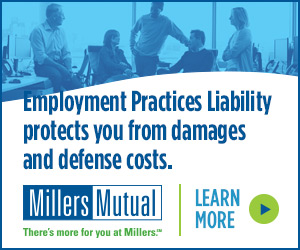 |
||||||||||||||||||||||
| Archive | Subscribe | Printer Friendly | Send to a Friend | www.iiav.com | ||||||||||||||||||||||
| October 2017 | ||||||||||||||||||||||
|
From the Desk of the President & CEO
Do you remember when you first got into this profession? The opportunities were limitless and yet there had to be some trepidation over the responsibilities that lie within our industry and profession. Might you also have felt that it would have been nice to meet with other professionals your age to exchange ideas and experiences that likely you couldn’t share with others? IIAV Member Resources
The Medical Loss Ratio “MLR” is a provision within the Affordable Care Act “ACA”. It requires all health insurance carriers to spend a specific percentage of their fully insured individual and group insurance premium dollars to reimburse health care providers on claims submitted, as well as qualified programs that improve the quality of health care. The MLR requirement for individual coverage and small groups, those with less than 100 employees, is 80% leaving the insurance company with 20% to pay all overhead expenses including profit. Large groups, those with 100 or more employees, have an 85% requirement leaving the insurance company with 15%. If a carrier’s overhead exceeds the 20% or 15% level, then the carrier needs to issue a rebate check. MLR rebate checks are typically issued in August and September and go to the employer. Employers need to follow strict guidelines on how the rebate money may be spent. Please contact me with any questions. Monty Dise, President State & National News
For September’s National Preparedness Month, the Internal Revenue Service is offering advice to taxpayers who may be affected by storms, fires, floods or other disasters. After the devastation of Hurricane Harvey and with Hurricane Irma threatening parts of the U.S. and Caribbean, the IRS reminds taxpayers that the agency is here to help, including offering a special toll-free number to taxpayers in federally-declared disaster areas that’s staffed with IRS specialists trained to handle disaster-related issues.
In some states, contractors have a real challenge when bidding on new business—if their experience rating modification (E-mod) is greater than 1.00, they might be ineligible for the job. Several articles published in recent years have discussed procurement offices’ misuse of E-mods. Despite this, disclosure of E-mods promulgated by NCCI or other rating bureaus continues as a requirement and relative measure of perceived safety practices by contractors bidding on projects.
On September 6, 2017, the New York State Department of Financial Services or DFS added new FAQs to its "Frequently Asked Questions" page that directs individual licensees to file for an exemption from Part 500 — the cybersecurity regulation. The additions were the first written mention of such an interpretation, coming more than six months after adoption of the regulation. According to the DFS, individuals have until September 27 to file for the exemption.
Employers should determine how they will communicate with employees in case of emergency and should consider not just cell and home phone information but also social media access through the organization’s website or a special emergency social media site just for employees and/or families of employees. IIAV News
But as of September 13, there are 2137 additional reasons to be proud. That number has significant meaning.
Upcoming Events
Press Releases
Education
We have some great opportunities for your professional growth coming up this month and we hope you’ll join us. Included is some new and different content, as well as a mixture of class format to fit your schedule and/or learning style. Check out our full calendar, too, but here are a few classes we want to highlight! E&O Spotlight
You placed the business in an approved market per your agency’s market selection process. In placing the business you informed your client of the available options with alternate markets, and if the policy was assessable, provided full details. In summary, you acted in a fully prudent manner by placing business in a market to protect both yourself from claim and your policyholder from financial loss. |
||||||||||||||||||||||










_thumbnail.png)




